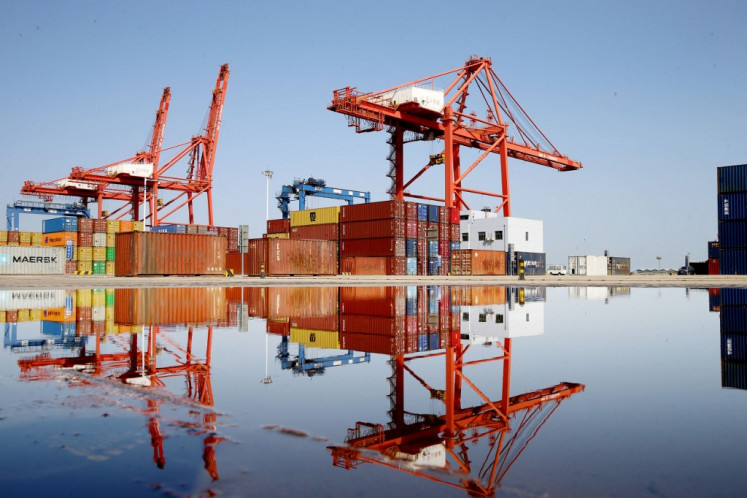ASEAN repatriation report ‘fails to address’ root causes
A report submitted by an ASEAN agency on the possible repatriation of Rohingya refugees has failed to convince activists that the agency can provide a safe, secure and dignified return for the refugees given concerns that the plan does not address the root causes of the conflict
Change text size
Gift Premium Articles
to Anyone

A
report submitted by an ASEAN agency on the possible repatriation of Rohingya refugees has failed to convince activists that the agency can provide a safe, secure and dignified return for the refugees given concerns that the plan does not address the root causes of the conflict.
London-based Rohingya organization Burma Human Rights Network (BHRN) has called on ASEAN member states to reject the plan and insist upon a thorough, ethical and realistic evaluation of the conflict in Myanmar.
Previously, news agency AFP, citing a leaked report prepared by the Emergency Response and Assessment Team (ERAT) from the ASEAN Coordinating Center for Humanitarian Assistance on Disaster Management (AHA Center), reported that the assessment in question ignored the ongoing civil war in Rakhine state, Myanmar, and failed to mention the persecuted Muslim minority by name.
The BHRN’s executive director, Kyaw Win, said the AHA Center assessment did not seem to have consulted with any Rohingya leaders or organizations, despite them being the key stakeholders.
He said the assessment failed to address the attacks committed by the security forces, saying that any plan to repatriate the Rohingya must consider why they had fled in the first place.
“To plan without considering this, as ASEAN is now doing, is to pursue a path which has no chance to succeed,” he said in a statement received by The Jakarta Post recently. “The expected ease of repatriation further demonstrates how out of touch the ERAT is with the reality of the situation at hand.”
Previously, ASEAN and the Myanmar government had agreed to take practical steps to alleviate the situation in Rakhine, in accordance with the AHA Center report.
Since the initial military crackdown that began in 2017, it is estimated that more than 700,000 mostly Muslim Rohingya have fled persecution in Buddhist-dominated Myanmar to neighboring Bangladesh.
Among the major concerns of the Rohingya refugees are the guarantee of citizenship, as they have been denied citizenship under 1982 Myanmar nationality law for not being one of the eight “national indigenous races”.
Jose Tavares, the Indonesian Foreign Ministry’s director general for ASEAN affairs, said citizenship was one issue addressed by the member states although in fact it has yet to be fully discussed.
“We know that citizenship issue is a nonstarter, so we have to start with the most urgent matter; the humanitarian response,” he said on Friday.
He said member states had asked the Myanmar government to ensure the repatriation would be safe, secure and dignified, while also aiming to provide decent livelihoods for the refugees so they would not stay in camps forever.
ASEAN leaders are scheduled to meet at a bloc summit next week from June 20 to 23 in Bangkok, where they are expected to discuss the Rohingya crisis.
On Friday, ASEAN Secretary-General Lim Jock Hoi briefed ambassadors and diplomats from ASEAN member states and partners, as well as relevant UN agencies and other international organizations, on the AHA Center’s report.
He said the report was the first among other activities planned to support the safe, secure and dignified voluntary return of displaced persons to Rakhine.
“This includes a series of comprehensive needs assessments, which will commence when the security of the displaced persons is assured,” he said as quoted from the ASEAN website.
ASEAN would also establish a technical working group to coordinate the implementation of the recommendations from the initial assessment and implement the local capacity-building program to support the repatriation process.









